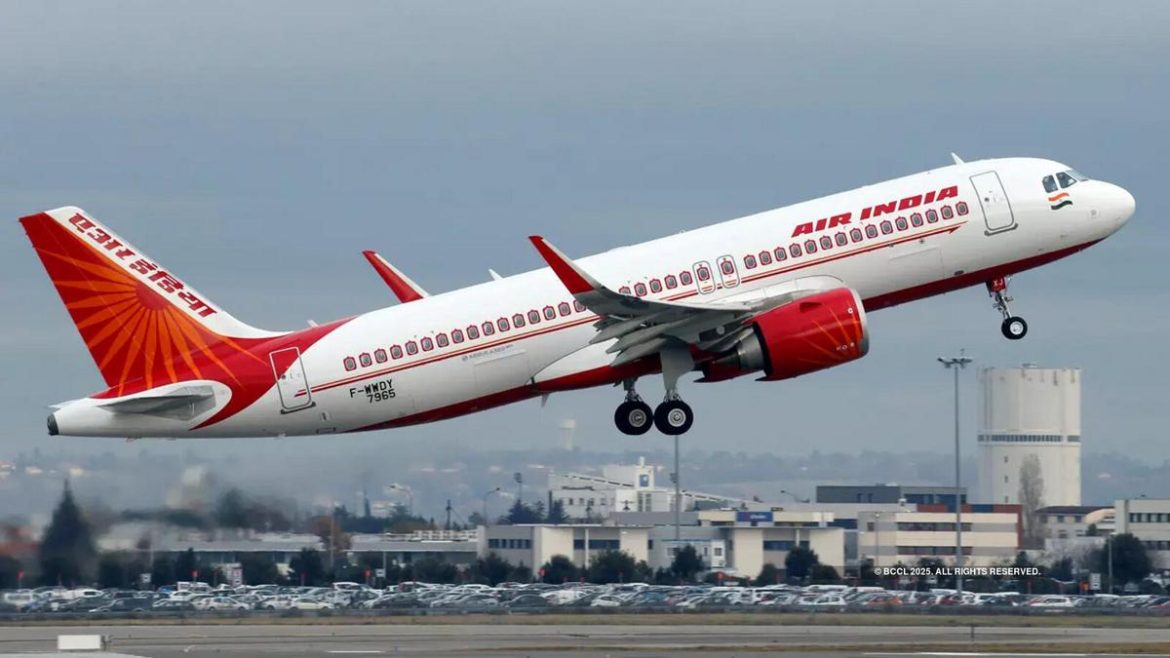Air India Flight Grounded in Pune After Bird Strike Incident
An Air India aircraft traveling from Delhi to Pune was grounded on Friday, June 20, after sustaining a bird hit during landing. While the plane landed safely at Pune Airport, airline officials detected the impact during post-landing inspections, forcing the cancellation of its return journey to Delhi.
“Flight AI2470 scheduled to operate from Pune to Delhi on 20 June 2025 has been cancelled due to a bird-hit which was detected after the incoming flight landed safely at Pune. The aircraft has been grounded to carry out extensive checks,” the airline stated.
Disruption for Travelers on Pune–Delhi Route
The canceled evening departure from Pune affected dozens of travelers who were expecting to board the aircraft back to Delhi. Passengers were informed at the airport and later received communication options including full refunds or the ability to reschedule their flights at no additional cost.
The airline emphasized that all passengers on the incoming Delhi–Pune leg were unharmed and deboarded safely. Staff on-site assisted travelers with alternate arrangements.
“Refunds on cancellation or complimentary rescheduling is also being offered to guests who opt for it. Alternative arrangements are being made to fly the passengers to Delhi,” Air India said in a follow-up statement. “At Air India, the safety of our passengers and crew remains our top priority.”
What Happened in Pune
The bird strike occurred sometime during descent, but wasn’t immediately detected by the crew during flight. Airline engineers discovered evidence of it during standard post-landing checks, prompting an automatic grounding of the aircraft for detailed inspection and maintenance.
There was no visible damage to the fuselage, according to preliminary observations at the airport. Still, as per aviation safety regulations, the aircraft must pass technical evaluations before returning to service.
Pilot reports and crew logs are expected to be reviewed as part of the standard internal investigation protocol, though the incident currently does not point toward any malfunction caused midair.
Why Bird Strikes Are Taken Seriously
Although bird strikes are common, especially during landing or takeoff, airlines don’t take them lightly. Even a relatively minor hit can damage the propulsion system or sensors, jeopardizing future flights if overlooked.
- Bird strikes often affect aircraft engines or wings.
- Even small birds hitting at high speed can damage structural components.
- Standard procedure includes detailed inspection by ground engineers and maintenance crews.
In many airports, active wildlife management programs aim to limit such encounters. It’s unclear whether civic authorities or Pune Airport will review local wildlife risk following this incident.
Government’s Reaction: Safety Still Under Scrutiny
While this particular incident ended safely, it piles onto mounting concerns about Air India’s recent record. The airline is already under pressure due to last month’s fatal Dreamliner crash on the Ahmedabad–London Gatwick route that cost 271 lives.
That tragedy, one of the deadliest in India’s commercial aviation history, accelerated safety audits across the national carrier’s fleet. The Directorate General of Civil Aviation (DGCA) launched an extensive review of Air India’s Boeing 787 jets, citing lapses in maintenance routines and crew coordination.
The watchdog’s update indicates:
- 66 Dreamliner-operated flights have been cancelled post-crash.
- Six flights were grounded on June 12 alone.
- By June 18, 24 of 33 Dreamliners had undergone technical inspection.
- Two remain listed as AOG (Aircraft on Ground), both parked in Delhi.
This latest Pune event doesn’t involve a Dreamliner—it was likely an Airbus or older Boeing series—but public confidence continues to wobble.
Passengers Caught In Between
A stranded traveler at the Pune terminal, visibly impatient, told on-ground media, “I understand it’s for safety, but no one is giving us a clear timeline. If these things happen often, we should have Plan Bs.”
It’s unclear at the time of this report how many passengers accepted alternate rebooking or opted for compensation. Affected passengers were reportedly being rerouted via connecting flights or shifted to later departures.
Looking Ahead: What This Means for Travelers
If you’re flying with Air India in the coming weeks, you might wonder—how often does this happen?
Bird strikes can’t always be avoided, but their frequency peaks around monsoon and migration seasons. Travelers headed to regional airports like Pune may experience occasional disruptions, especially in the early morning or evening when birds are most active.
For now, Air India seems to be playing by the book—grounding planes after even minor hits and notifying passengers promptly.
Still, this second disruption in barely a month may spook nervous flyers or invite further regulatory scrutiny. With air travel expected to surge over the summer break, attention will be on both the airline’s response time and preventive measures across Indian airports.
The DGCA hasn’t issued a formal statement on this particular strike, but given current context, that might just be a matter of time.
What Can Airports Do?
Experts in aviation safety say Indian airports need stronger bird hazard management protocols. Efforts typically include:
- Removing open water sources near runways
- Planting grass nearly six inches tall to deter nesting
- Using laser or pyrotechnics to scare birds away
- Routine patrols by wildlife managers
Whether Pune Airport follows all of these methods isn’t immediately clear, and no further comments were issued by airport authorities before publication.
The grounded aircraft will remain under observation for now. No exact timeline has been released for when it can resume operations.
For travelers and officials alike, this event underscores a recurring reality of modern air travel—unexpected, inconvenient, and at times, revealing.

